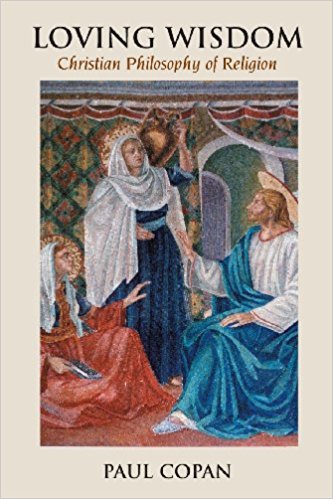Take Up and Read: Loving Wisdom
This current blog series on Reflections is intended to encourage Christians to read more vigorously by providing a beginner’s guide to some of the Christian classics in such fields as theology, philosophy, and apologetics. My hope is that these introductions to important Christian texts will motivate today’s believers to, as St. Augustine put it, “take up and read” (Latin: Tolle lege) these classic books.

This week’s book, Loving Wisdom by philosopher Paul Copan, is an excellent introduction to the philosophy of religion from a Christian perspective. Copan’s presentation of the Christian theistic worldview is philosophically and theologically sophisticated, but also accessible. This is my go-to book on the various topics relating to the philosophy of religion.
Why Is This Author Notable?
Paul Copan is a Christian philosopher, theologian, and apologist. He serves as professor of philosophy and ethics at Palm Beach Atlantic University. A prolific author, Copan has written and edited over 25 books in such fields as philosophy of religion, apologetics, theology, and biblical studies.
What Is This Book About?
Loving Wisdom offers a robust and readable presentation of the historic Christian worldview combined with a defense of the faith. Copan addresses various theological, philosophical, and apologetics issues in five parts.
Part one explores and defends the triune nature and attributes of the biblical God. Part two examines a variety of arguments for God’s existence as well as for the reality of miracles. Part three focuses on such challenging topics as evil, sin, hell, and the alleged hiddenness of God. Part four explains the critical Christian doctrines of the incarnation and atonement and illustrates Jesus’s uniqueness among the world’s religious leaders. Part five tackles such issues as the body-soul relationship along with faith, doubt, and hope.
Copan’s basic apologetics reasoning typically reflects an abductive or best-explanation approach, which is associated with a cumulative case method of doing apologetics. Here Copan notes how apologetic reasons and arguments require the work of the Holy Spirit in order to lead to conversion:
Good public reasons and arguments are important, though by themselves they don’t guarantee participation in God’s family. The Spirit, who can use evidence, assures us of such realities. . . . We ultimately know the reality of God’s presence and love by his Spirit’s illumination and life-giving power—though we should be prepared to show people evidences and give reasons for the truth of the Christian faith.1
Why Is This Book Worth Reading?
Loving Wisdom is a very engaging text that reflects Copan’s many years of study in Christian theology, philosophy, and apologetics. The book is doctrinally and philosophically informed, fair-minded, and readable. I especially enjoy Copan’s best-explanation reasoning and his responses to various challenges to the historic Christian worldview. This work is worthy of careful study and reflection. Buy it, read it, and discover the joy of “loving wisdom”—the very definition of philosophy.
Endnotes
- Paul Copan, Loving Wisdom: Christian Philosophy of Religion (St. Louis: Chalice Press, 2007), 2.






